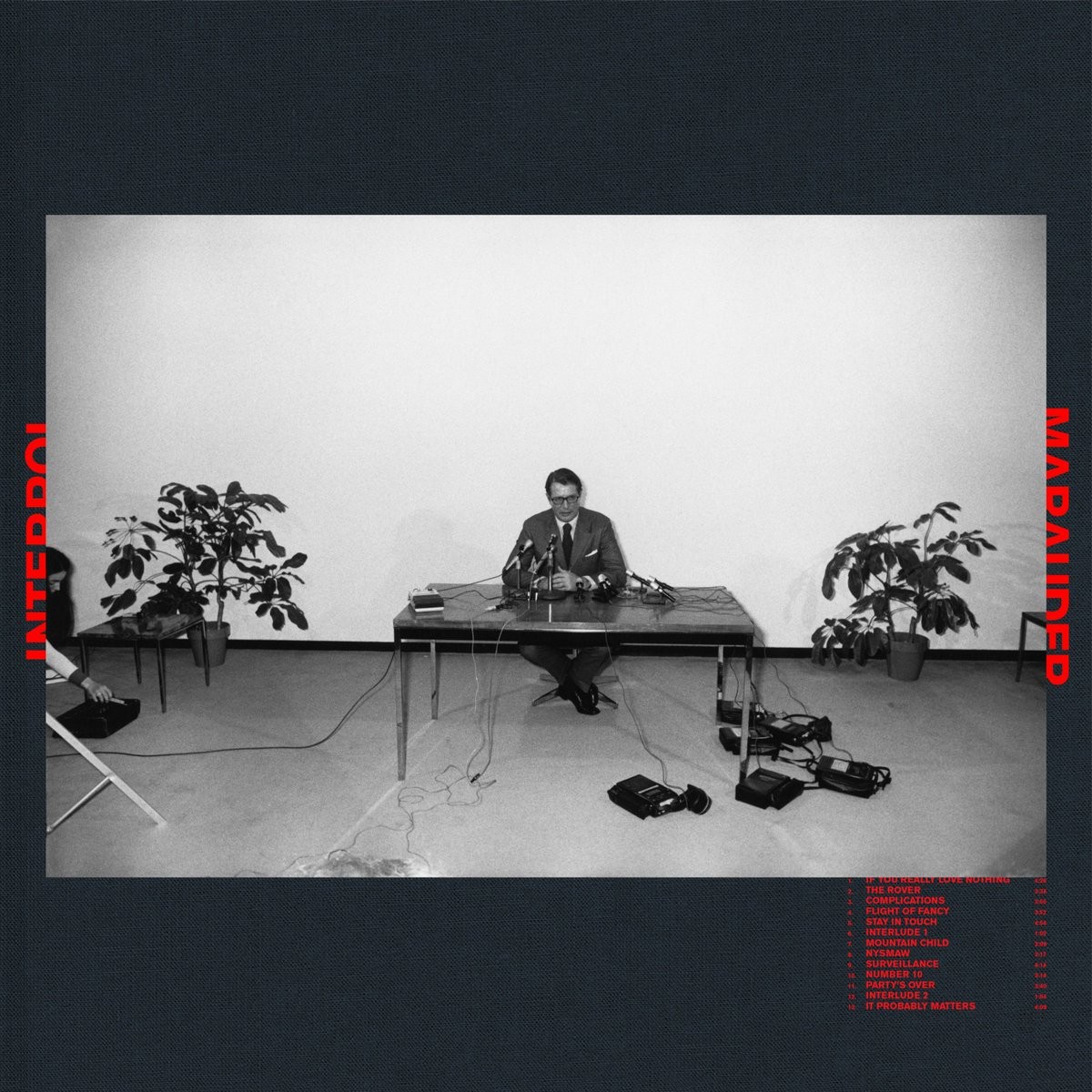Popular Reads
Top Results
Can't find what you're looking for?
View all search resultsPopular Reads
Top Results
Can't find what you're looking for?
View all search resultsAlbum review: 'Marauder' by Interpol
Change text size
Gift Premium Articles
to Anyone
O
n its sixth album Marauder, New York City band Interpol shakes up its sound more than ever before — with an emphasis on “sound”.
Working fully with a producer for the first time (the band has used co-producers before), the record eschews completely the carefully-crafted aural aesthetic that rocketed the band into immediate indie-sphere popularity in the early 2000s. It’s also recorded like a live record with an overdriven recorded-on-tape polish — a stylistic choice that may scare off Interpol die-hards.
No longer does its music soundtrack the band’s suavely-suited getups with fitting minimalist indie rock, careful chiming and jagged guitars interplaying atop fluid punk-funk rhythms. The newer Interpol, the one that’s settled on this more pronounced approach since 2014’s El Pintor, is less noir and more “rawk”. The instruments mostly “wail” instead of breath meditatively; there’s less space between them and much more aggression. It’s certainly still not gross macho-rock by any means, but it’s a clear declaration as any that almost all of the songs lurch forward with confident immediacy.
Guitarist Daniel Kessler – whose guitar parts often provide the seed of the songs – has grown to write less of the cinematic riffs that has been the backbone of some of Interpol’s best tracks. He still infuses some of that reverb-sweetened single-note combinations that are part post-punk-futurism and part noir-Western.
But they are less about perfect melancholy gracefulness and feel rougher, looser. Like his band-mates – vocalist-guitarist (and bass-player on the record) Paul Banks and drummer Sam Fogarino, his playing has grown to be more propulsive; perhaps the result of years of on-stage experience.
Producer Dave Fridmann (Flaming Lips, MGMT, Tame Impala) embraces this through what is positively Interpol’s roughest-sounding record. Indeed, the shift is initially jarring. There’s an incredible live-in-the-studio looseness to the way these songs were recorded. While it’s still far from “jam”-like, the record relies in-absolute on the band’s obvious confidence in its musical solidness. Some slight missed tempos and notes, audible static and noises, as well as guitar effects that are definitely not edited in computers present an Interpol rarely seen or heard before.
The closest the band comes to feeling this unproduced, is on its breathtaking 2002 debut Turn On the Bright Lights, which was of course recorded pre-success and thus pre-studio and live experience.
Fridmann’s production echoes this rawness, with the producer making stylistic choices that take time to settle — especially in lieu of the band’s past recordings. The drum’s hi-hat is in a frequency that is difficult to ignore, the vocals feel slightly-more buried than they are usually and the overall mix sounds like it’s always set to “crunch” — overdriven to the point of obscuring the instrumental interplay, especially between the guitars.
Fans who have seen some of these songs performed live will attest to how much this overdriven aesthetic robs some of the songs of its classic Interpol-ness. The guitar interplay is still there, so why obscure it? So is the smoldering sleaziness of Banks’ always-entertaining sense of humor and humanity. Even the drums, as loud as they are, feel mushed together most of the time. There’s certainly a peculiar aesthetic in this clipped, distorted presentation — and after taking its time to settle, it does suggest a clearer relationship with the songs.
First single “The Rover” practically marathons forward like a stoner-rock Interpol, driven by a massive low-end and crisp drums that would not be as prominent in previous Interpol releases. “NYSMAW” (short for Now You See Me at Work) is Interpol on mystery-mode but given an extra-menacing edge through its audible crunch and urgent, almost-impatient pace — a clear indicator of that “live” approach. The twangy-indie-goth of “Stay in Touch”, meanwhile, embraces the disquieting masculine hush of early Interpol but presents it through a Marauder-filter with noisy drums and guitars keeping much dynamic opportunity at bay.
Banks has since long shed his early-baritone for a higher register, but there’s still that sexy nocturnal-drifter crooning quality that’s given Interpol much of its character. His lyrics still retain a particular sense of humor but sprinkled with fitting-for-Marauder extra dirtiness.
“It Probably Matters” leans towards infidelity, “The Rover” is from the point of view of a charismatic cult leader, whose perspective also makes its way onto other songs on the album.
To truly assess whether these aesthetic choices (which isn’t as left-field as some may have you believe, considering the band’s album trajectory) works for or against the songs feels like it will take time. What is clear is that Interpol’s most-immediate appeal is not here.
The songs are for the most part as good as El Pintor tracks, with Banks’ vocal lines feeling like they’ve settled on those sense of melodies for now — shedding his most-affecting delivery, which relied on pace and space alongside the still-there longing note choices. That same pace and space in the instruments are also absent, obstructed by either Banks’ vocals, which rarely take a step back, or endless riffing.
There are still great hints of Interpol moments here, and by not wishing the band “go back to its roots” is the best way to listen to these tracks. They are strong, moody melodic rock tracks recorded really loud, but they’re just not the Interpol of old.











